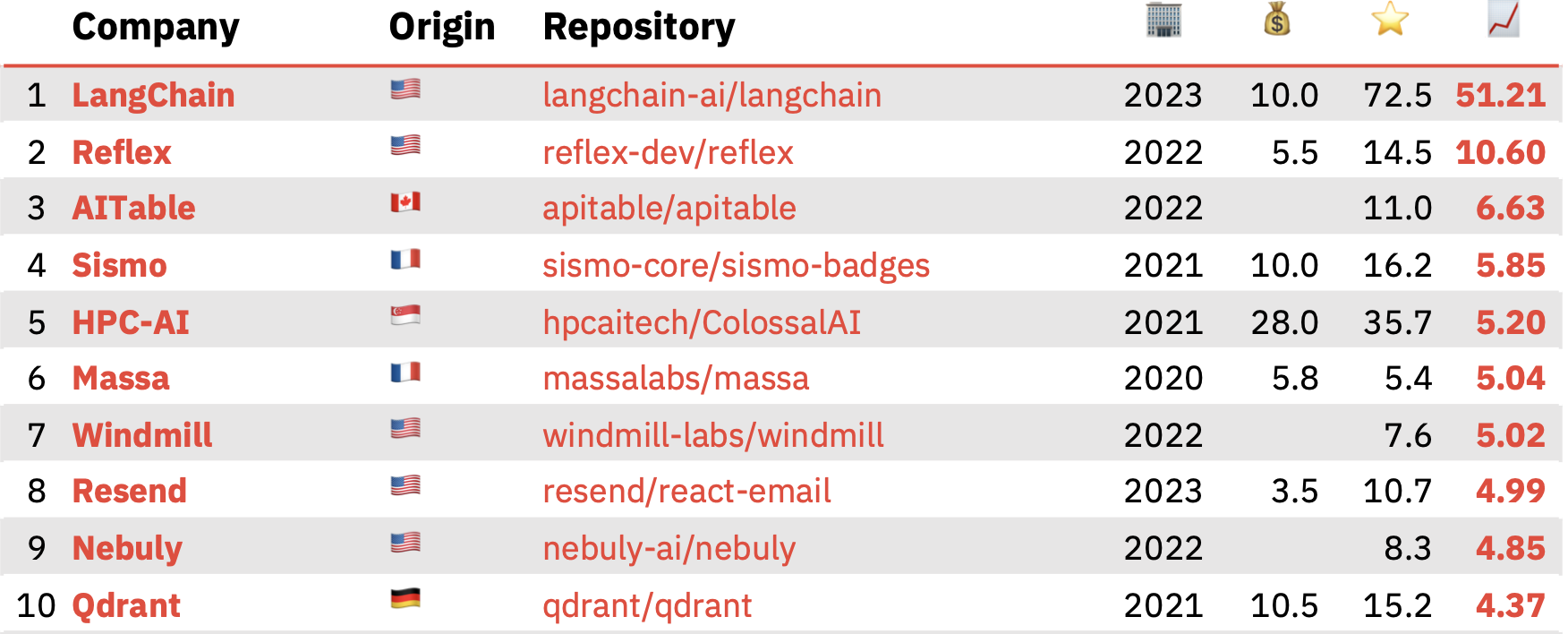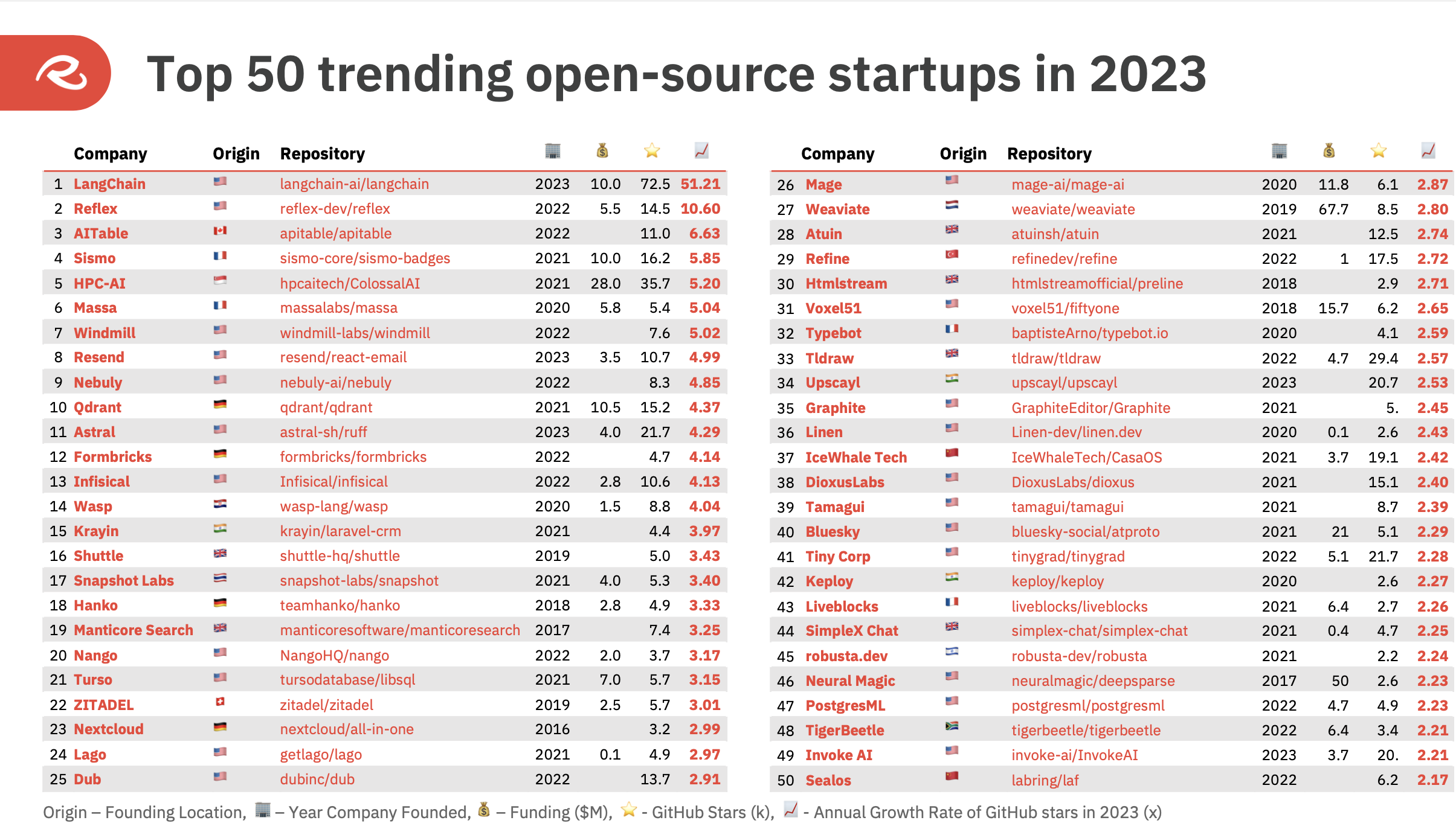A new report has highlighted the demand for startups building open source tools and technologies for the snowballing artificial intelligence revolution, as nearby data infrastructures also heat up.
Runa Capital , the venture capital (VC) firm that raised its levels from Silicon Valley and moved its headquarters to Luxembourg in 2022, published the Runa Open Source Startup ( ROSS ) Index for the last four years, shedding light on the commercial startups of open source software (COSS) the most plants. Last year too, it produced its first annual report taking a top-down view of the whole of 2022 – something it is now repeating for 2023.
trends
Data is precisely suited to AI because AI relies on data to learn and make predictions, and it requires an infrastructure to manage the collection, storage and processing of that data. These tangential trends collided in this report.
According to the ROSS index, for the last year LangChain , a two-year-old startup from San Francisco that developed an open source framework for building applications based on large language models (LLMs), took first place . Sequoia continues to lead a $25 million A round into LangChain as the company passes 72,500 stars in 2023.

The top 10 COSS startups in the ROSS index for 2023 Photo credit : Rona Capital
Second on the list is Reflex , focused on developing web applications in Python and open source, and there are many others on the list such as AITable , Sismo , HPC-AI and Qdrant.
The report also provides information on the geography of the open source companies, with 23 of the 50 companies on the list centered in Europe.

The top 50 COSS startups in the ROSS index for 2023 Photo credit : Rona Capital
Methodology and context
The ROSS report uses what it calls "commercial perception of open source" to credit the startups that get a spot on the list and serves as a useful supplemental tool to understand which ones are worth following specifically.





